The rising tide of health technology: Design for equity to ensure access for the underserved
Dalberg recently hosted a webinar with four medical practitioners who are helping to redefine the intersection of health tech and equity. This is what we learned.
Read moreNone until all are free: LGBTQ+ rights through an intersectional lens
While there has been major progress in certain areas of the LGBTQ+ movement, the same Black, Indigenous, and People of Color (BIPOC) transgender and gender non-conforming (GNC) communities that paved the way for Pride and LGBTQ+ rights continue to face systemic oppression and violence at an alarming rate today.
Read moreLow-wage work, low quality jobs: Understanding and addressing barriers to job quality for low-wage workers
There are an estimated 53 million low wage workers in the US, a workforce that is disproportionately composed of Black, Indigenous, and People of Color (BIPOC) workers. In addition to financial insecurity, these workers are also less likely to have access to higher quality jobs. A new Dalberg report examines the barriers to job quality for low-wage workers in small and medium businesses and opportunities to address these challenges and support economic mobility.
Read moreIt's about time: Private investment in U.S. care infrastructure
The Covid pandemic spotlighted the longstanding need for stronger care infrastructure in the United States. Without sufficient investment in safe and affordable care services and products, the economy cannot build back after the pandemic. Current federal and state efforts to invest in care are critical but private investment in care infrastructure will also be essential to not only build back – but build back better.
Read moreShifting practices, sharing power? How the U.S. philanthropic sector is responding to the 2020 crises
A new survey and report from Dalberg Advisors, Philanthropy California, and the Council on Foundations outlines the critical next steps and fundamental shifts respondents raised as necessary to build an equitable future.
Read moreWhy supporting minority-led businesses is key to New York City’s recovery
Dalberg conducted an analysis to demonstrate the critical need for support of minority-led small and medium-sized businesses to drive economic recovery in New York City.
Read moreShifting power to communities in grant funding
For all the attention paid to diversity in board and executive leadership, and who receives grants, another fundamental area of racial justice in the funding world is ripe for exploration: Who has decision-making power over where capital flows?
Read moreAll Insights
-
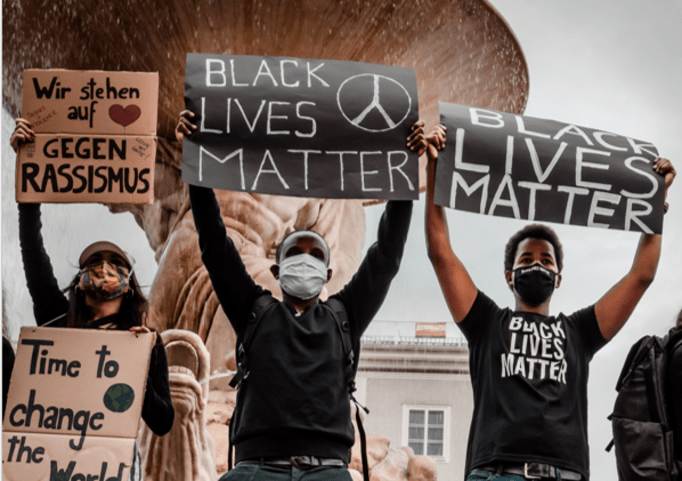
Corporate grantmaking with a racial equity lens: A toolkit for more impactful giving
Beyond funds explicitly dedicated to racial equity, corporate philanthropists have an opportunity to advance racial equity across their entire portfolio. Dalberg has developed a new toolkit to support these efforts.
-

The rising tide of health technology: Design for equity to ensure access for the underserved
Dalberg recently hosted a webinar with four medical practitioners who are helping to redefine the intersection of health tech and equity. This is what we learned.
-

None until all are free: LGBTQ+ rights through an intersectional lens
While there has been major progress in certain areas of the LGBTQ+ movement, the same Black, Indigenous, and People of Color (BIPOC) transgender and gender non-conforming (GNC) communities that paved the way for Pride and LGBTQ+ rights continue to face systemic oppression and violence at an alarming rate today.
-

Low-wage work, low quality jobs: Understanding and addressing barriers to job quality for low-wage workers
There are an estimated 53 million low wage workers in the US, a workforce that is disproportionately composed of Black, Indigenous, and People of Color (BIPOC) workers. In addition to financial insecurity, these workers are also less likely to have access to higher quality jobs. A new Dalberg report examines the barriers to job quality for low-wage workers in small and medium businesses and opportunities to address these challenges and support economic mobility.
-

It's about time: Private investment in U.S. care infrastructure
The Covid pandemic spotlighted the longstanding need for stronger care infrastructure in the United States. Without sufficient investment in safe and affordable care services and products, the economy cannot build back after the pandemic. Current federal and state efforts to invest in care are critical but private investment in care infrastructure will also be essential to not only build back – but build back better.
-

Shifting power to communities in grant funding
For all the attention paid to diversity in board and executive leadership, and who receives grants, another fundamental area of racial justice in the funding world is ripe for exploration: Who has decision-making power over where capital flows?
-
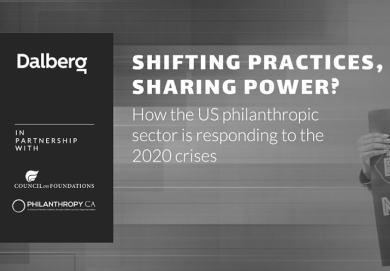
Shifting practices, sharing power? How the U.S. philanthropic sector is responding to the 2020 crises
Dalberg, Philanthropy California, and the Council on Foundations surveyed more than 250 U.S. foundation leaders and conducted fourteen in-depth interviews to understand how the U.S. philanthropic sector is responding the Covid-19 crises and public outcry against racism as part of what is likely the largest recorded social justice movement in U.S. history.
-
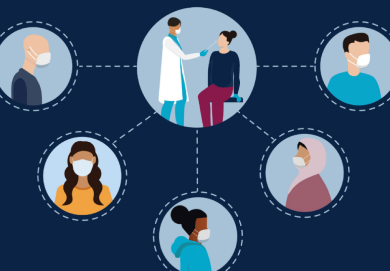
Inequity in Covid-19 testing in the U.S.: how DC’s response to HIV/AIDS could help
Covid-19 is disproportionately impacting lower-income minority populations across the U.S. In a research paper, Dalberg draws on lessons from DC’s HIV/AIDS response, and identifies two initial steps to help overcome the disproportionate impact of Covid-19 on people of color.
-
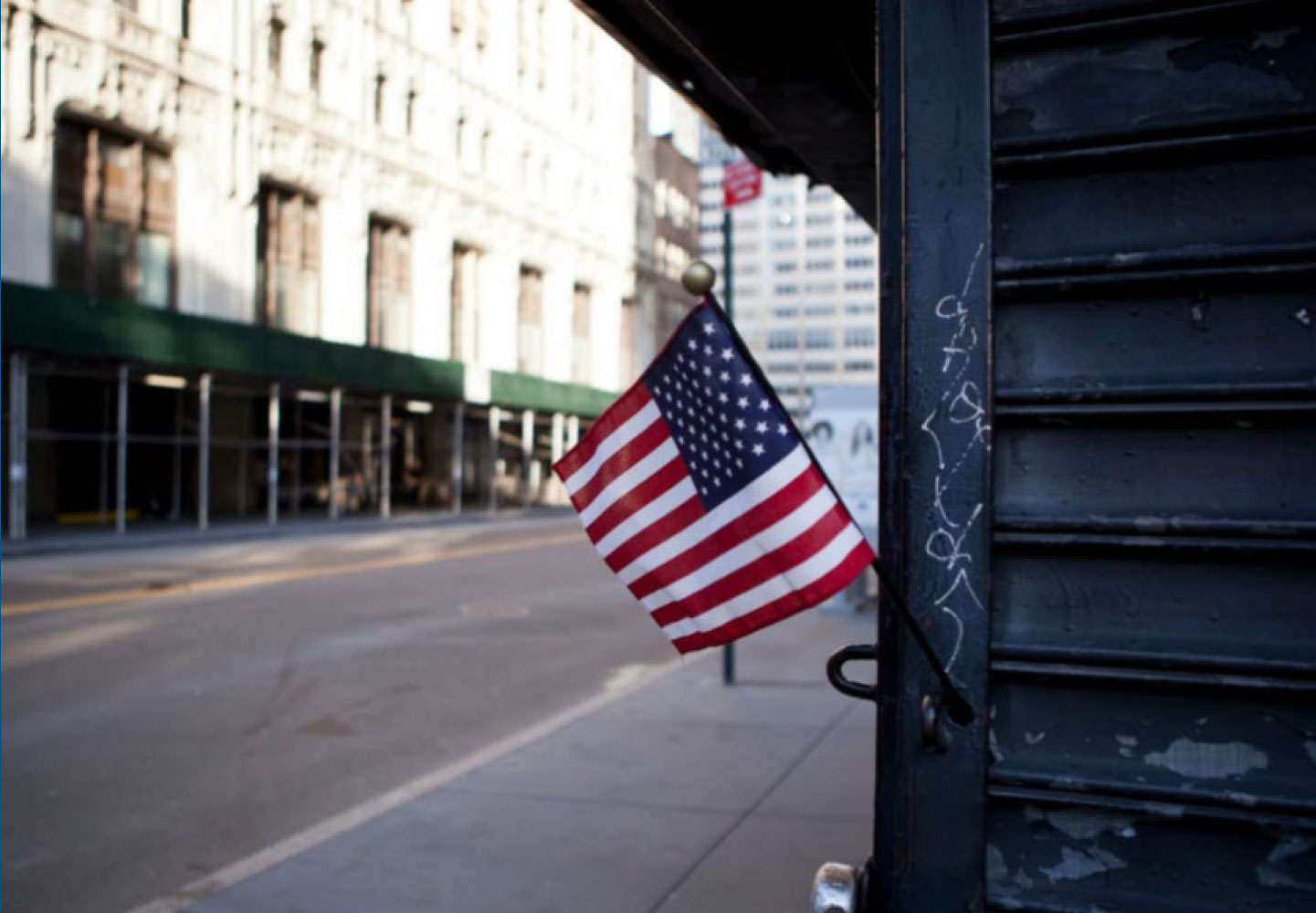
Why supporting minority-led businesses is key to New York City’s recovery
Dalberg conducted analysis to demonstrate the critical need for support of minority-led small and medium-sized businesses to support economic recovery in New York City.
-

The U.S. care economy in crisis
Caregivers are some of the most economically-exposed workers of the Covid-19 pandemic. This article outlines what’s being done in the U.S. today – and how we can recognize the vital role workers play in the economy, both now and in the future.
-
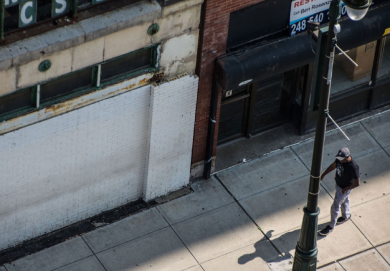
Post-Covid-19 economic recovery will happen — but will we make it equitable?
Local, state, and federal governments are mobilizing support, but if benefits are not delivered equitably to SMEs, polarization and inequality will increase as the crisis progresses — and last long after it has ended. This Dalberg-authored white paper shows how to address the unique needs of minority-owned small businesses.

